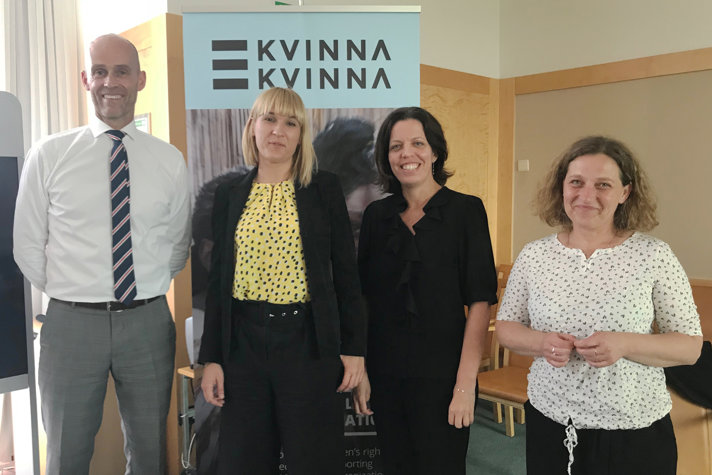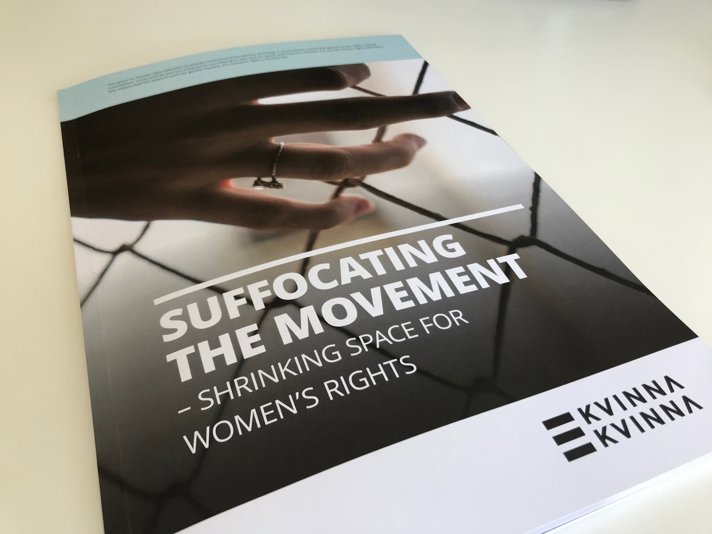Working for women’s rights more difficult in many countries
Published
According to a new report from the Kvinna till Kvinna Foundation, the space for women’s rights defenders is shrinking in many countries. On 5 June, Sweden’s Permanent Representation to the European Union showcased the report at a meeting with the Kvinna till Kvinna Foundation and other organisations working in the area.
- The report calls attention to a situation that we are well aware of, said Ambassador Mikael Lindvall, Sweden's representative to the EU Political and Security Committee, when he opened the meeting.
He spoke about the central role women's rights work plays in Swedish foreign policy within the framework of the Government's feminist foreign policy. Both the EU Political and Security Committee and the UN Security Council, on which Sweden currently has a seat, are important arenas for regularly promoting these issues.
-In that context, we work there to make it clear that women's rights are part of security policy, Mr Lindvall emphasised.
The report starts out by stating that the shrinking space for women's rights defenders is not a passing trend, but a new norm and a reality of our time. It was presented by Petra Tötterman Andorff, Secretary-General of the Kvinna till Kvinna Foundation.
- Developments have been positive in several areas, such as tougher legislation against domestic violence and more women participating in public decision-making processes. But in recent years we have seen that working to increase women's rights and gender equality is becoming increasingly difficult, said Ms Tötterman Andorff.
In addition, she pointed out that anti-democratic trends, nationalism and fundamentalism are among the root causes of these developments. Prohibiting organisations from taking action, hate campaigns, the threat of sexual violence, the risk of being arrested and greater administrative burdens that make running projects complicated are examples of how the work is restricted.
- The report is based on a survey answered by more than 120 women's rights defenders in 32 countries. More than 60 per cent of them say they have less space to work in, and it's important to keep in mind that in many cases, that space wasn't particularly large to begin with, said Ms Tötterman Andorff.
During the meeting, the participants shared their own stories and experiences.
In addition to Petra Tötterman Andorff, Irena Cvetkovic from Coalition Margins, Macedonia, and Dragana Dardic from Helsinki Citizens Assembly Banja Luka, Bosnia and Herzegovina, also spoke.
Link to the report:
Suffocating the movement – Shrinking space for women's rights



 X
X